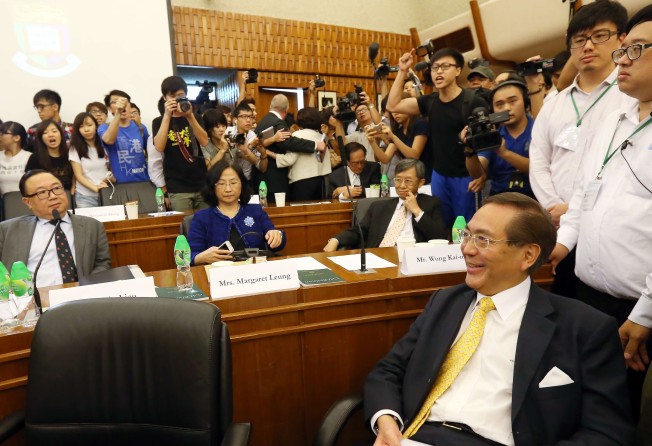Report backs ‘skills template’ to get right people for councils

I refer to the article(“Lack of control hampers university councils in key areas, report says”, March 31).
It is unfortunate that both the headline and the lead paragraph gave the impression that Sir Howard Newby’s “Governance in UGC-funded Higher Education Institutions in Hong Kong” report focused on “the chief executive’s power” to appoint members of the institutions’ governing councils, and what was described as councils’ “lack of control” over the appointments.
The full text of the report is available at the University Grants Committee (UGC) website, and when one reads it through, it is obvious that the main proposition in relation to the recruitment, induction and professional development of council members is that there should be a systematic approach to the appointments, involving consideration of universities’ needs to fill the requisite range of skills and expertise required to discharge councils’ responsibilities. The question of who should be empowered to make those appointments is not a focus of the report.
The report also mentions “important potential consequences” for governance, not as a result of councils’ “lack of control over finding the right governors” (as your article suggested), but arising from the situation when a university is unable to draw upon the range of skills it needs. Hence, the report’s first recommendation is that institutions should draw up a “skills template” for the identification of candidates for appointment as council members. In passing, the report also suggests that the government “might consider organising an interview process for potential candidates”, in order to confirm that the candidates have the necessary skills required by each council.
The report also makes other recommendations to enhance governance, including the establishment of a written accountability framework on which the university president and the council report annually; creation of key performance indicators by each university to assess the progress of implementing their strategic plan; strengthening of council’s oversight of risk management; publication of a scheme of delegation to reassure councils that effective systems of delegations are in place, and a regular review of university governance by the UGC, among others.
As the report highlights, universities have grown in both size and complexity, so the expectations placed upon council members have grown. It is our earnest wish that the implementation of the recommendations could contribute to the enhancement of the effectiveness of the governance of our universities.
Carlson Tong, chairman, University Grants Committee